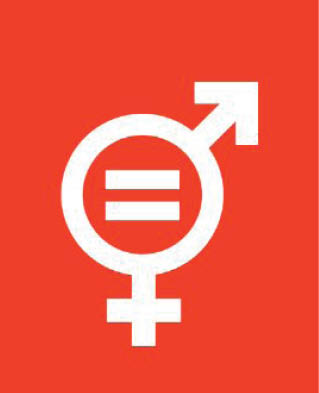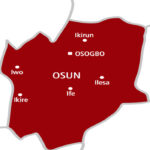This weekend, a number of civil society organisations were in Aba to pay a condolence visit on the family of our departed colleague, Alvana Ojukwu, who died in the Dana air crash of 3rd June 2012. She was enroute to Lagos to attend a workshop on promoting affirmative action for women in our political system.
She was involved with a collaborative effort of civil society organisations and women politicians preparing a memorandum suggesting practical ways in which the constitutional review process could be used to introduce mandatory constitutional and statutory provisions to increase the proportion of women in elective offices.
Alvana was a bright young lawyer who was totally committed to her job in the Centre for Democracy and Development (CDD) of improving the con- ditions of women. As the programme officer in charge of gender in the organisation, she was always on the forefront of devising programmes that can lead to positive change for women. Her untimely death was a devastating blow to all of us in CDD.
Meeting her mother this Saturday was a heart-breaking affair. The woman was still devastated and could hardly talk but the sad- ness in her eyes told the story of the shock and sorrow that has afflicted her since that terrible crash of 3rd June 2012. What mother can understand and accept losing such a promising life for her young daughter. As we said to her, however, whatever we feel, we cannot but accept God’s will.
The road to Aba was another story. The stretch on the Port Harcourt-Enugu Expressway is a shame to Nigeria. There is in reality no road. Vehicles simply searched, mostly unsuccessfully, for the smaller potholes to navigate. Aba town itself is a total disgrace. The pot- holes are so massive that a bevy of strong young men have found employment pushing stranded cars out of mammoth potholes. There is no evidence that Aba has seen governance in the past decade. The excessive individualism of Aba citizens is also alarming. Why would they allow a situation in which their cars are continuously wrecked by massive pot- holes and their children have to wade through knee-high pools of water while they pay their taxes and voted in the political class that is ruling and ruining their lives and property?
Returning to Alvana, one of the key issues she was working on just before her death was the famous Decree 27 of 1989 which was used to ban political parties from having women wings or youth wings. The relevant sec- tion—6 (1)—of the Decree states thus:
“No political party shall estab- lish, operate, retain, train or equip any person or group of persons or maintain any wing, vanguard or faction in whatever form, man- ner or by whatever name called to function in whatever form, man- ner or by whatever name called, to function in whatever form, man- ner or to foster the programme or manifesto of such political party or act as a militant group of the political party”.
The justification for the ban was laudable. During the First and Second Republics, women’s wings of political parties were composed mainly of entertainers and sex workers charged with servicing the male politicians while the youth wings were composed mainly of thugs recruited to harass and harm competing parties. Given this reality, the leaders of the women’s and youth wings were not in the executive committees of the parties.
The new political order of Babangida replaced the women and youth wings with the WOMAN and YOUTH leaders each of whom had one position in the executive committee at the national, state and local government levels of the party. Alvana was concerned that this one position was not good enough and was mere tokenism. Women and youth, she believed, should reconstitute their wings and branches on a new agenda of demanding for gender equality. Babangida’s Decree 19, she argued, was dead and buried.
In an email to me shortly before her death, she argued that “The Constitution is the Grand norm, (the supreme legislation), and every other legislation contrary to what it stipulates is null and void to the extent of its inconsistency with the pro- visions of the constitution. The Constitution provides for freedom of association, and particularly mentions freedom to form or belong to any association for the protection of one’s interests. The closest restriction to freedom of association with regards to political parties is found in Section 227 of the Constitution which basically bans political parties from retaining any group of persons for the purpose of display/use of physical force or coercion. Decree 27 of 1989 was, in some ways, a ploy by Babangida to kill political parties which will in turn make it easy for the military to remain in power.”
Our constitution, unlike the decree in question, provided for such matters as multiparty elections and was silent on the matter of women wings but rather waxed strong on issues of freedom of association. In addition, she argued, the Supreme Court decision on INEC versus Balarabe Musa made clear pronouncements in its judgement on regulation of political parties. It particularly ruled that the regulation of political parties by the State comes in two forms namely: regulation directly by the Constitution and regulation authorized by the legislature or other agency of the State (such as INEC). It therefore “follows that any attempt to regulate political parties not by the Constitution itself or by its authority is invalid”. Political parties, she argued, should not continue to believe that they are legally prevented from establishing women’s wings or caucuses of parties. No provisions bar them in the existing legal framework; so women in political parties should establish formal caucuses to promote a women’s agenda rather than depend on the single woman leader. She urged me to allow her proceed to prepare a policy brief and dis- semination meetings to push this agenda which I accepted, but alas, we will now have to continue on the project without her.
The concern of Alvana and others struggling for gen- der equality is that after 12 years of our appealing to them to increase the number of women nominated to contest elections, progress has been minimal. In fact, in the 2011 elections, fewer women were elected into various posts than in 2007. The results of our advocacy have not been significant. We therefore need a new strategy in which internal party structures for agitation are broadened while we continue to struggle for mandatory quotas established by the Constitution or by statute to force political par- ties present more women for electoral seats. May Alvana’s soul rest in perfect peace while the struggle continues.

 Join Daily Trust WhatsApp Community For Quick Access To News and Happenings Around You.
Join Daily Trust WhatsApp Community For Quick Access To News and Happenings Around You.


